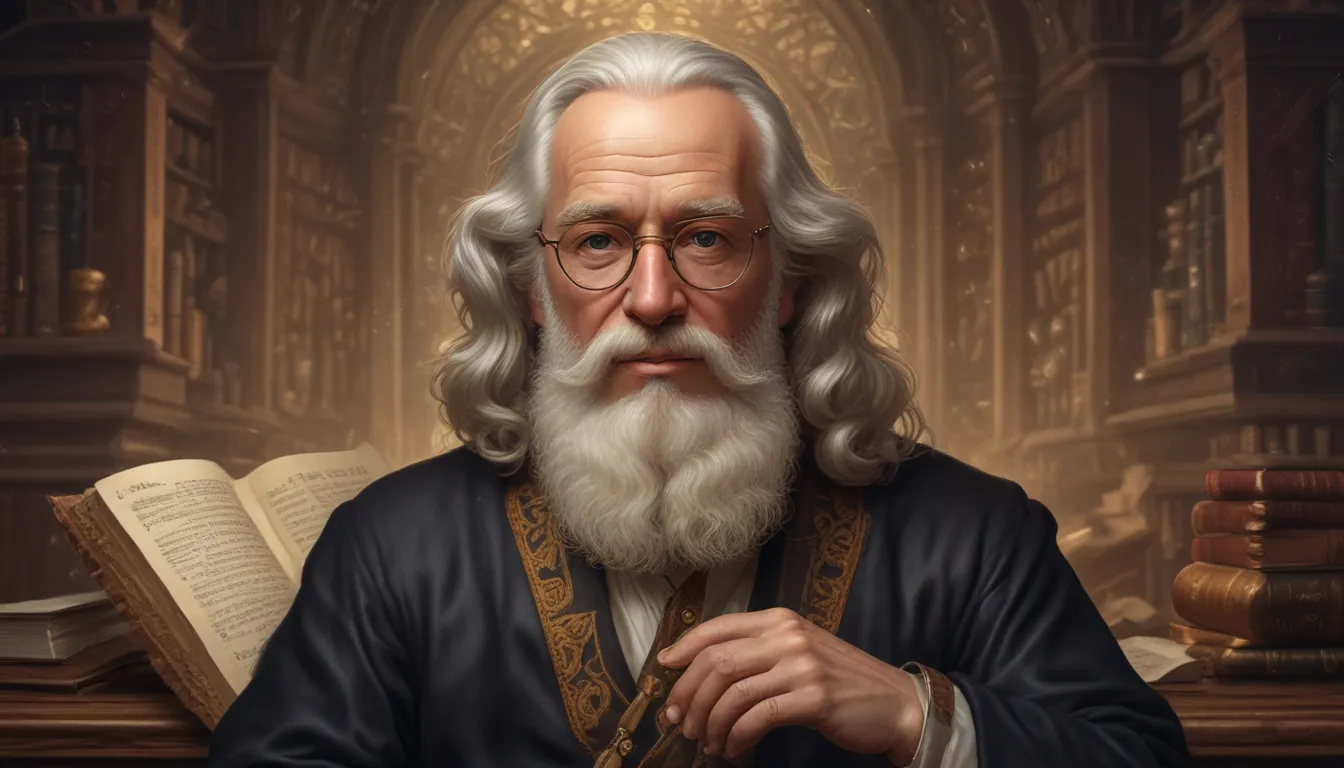The images in our articles may not match the content exactly. They are used to grab your attention, not to show the exact details in the text. The images complement the text but do not replace it.
Welcome to the fascinating world of William Kingdon Clifford, a brilliant mathematician and philosopher whose work continues to astound and inspire scholars to this day. Born on May 4, 1845, in Exeter, England, Clifford’s life may have been tragically cut short at the age of 33, but his impact on the academic world cannot be overstated. In this article, we will delve into nine astounding facts about William Kingdon Clifford, shedding light on his remarkable accomplishments, influential ideas, and the enduring legacy he left behind.
Discovering William Kingdon Clifford: A Renowned Mathematician and Philosopher
William Kingdon Clifford was a prominent figure in the fields of mathematics and philosophy during the 19th century. Despite his short life, he made significant contributions that revolutionized these disciplines.
The Revolution in Mathematics: Clifford’s Work on Geometric Algebra
One of Clifford’s most influential contributions was the development of geometric algebra, also known as Clifford algebra. This groundbreaking mathematical framework unified various branches of mathematics and had a profound impact on fields such as physics, computer science, and engineering.
Embracing Evidence-Based Reasoning: Clifford’s Advocacy for Intellectual Honesty
Clifford strongly believed in evidence-based reasoning and intellectual honesty. He emphasized the importance of forming beliefs based on empirical evidence rather than unsupported assumptions or blind faith.
The Ethics of Belief: Clifford’s Critical Examination of Knowledge Formation
In his famous essay “The Ethics of Belief,” Clifford scrutinized the role of evidence in belief formation. He argued that it is morally wrong to believe in something without sufficient evidence and highlighted the significance of intellectual honesty and critical thinking in the pursuit of knowledge.
Challenging Assumptions: Clifford’s Advocacy for Agnosticism
Clifford was a vocal advocate for agnosticism, questioning the existence of God and arguing that claiming certain knowledge about the divine is intellectually dishonest. His views on agnosticism continue to spark thought-provoking discussions in the realms of philosophy and theology.
Ahead of His Time: Clifford’s Contributions to Space and Time
Clifford made significant contributions to the understanding of space and time, laying the groundwork for future advancements in theoretical physics. His ideas were instrumental in shaping Einstein’s theory of general relativity and continue to influence the field of physics.
A Tragic Loss: Clifford’s Untimely Death and Enduring Legacy
Tragically, Clifford passed away at the young age of 33 due to tuberculosis. Despite his premature death, his contributions to mathematics, philosophy, and science continue to inspire and influence scholars.
The Legacy Lives On: Clifford Algebra and Its Applications
The Clifford Algebra, also known as Geometric Algebra, remains a powerful mathematical tool with applications in various fields such as computer graphics, robotics, and quantum mechanics. Clifford’s legacy lives on through the continued relevance of his mathematical concepts.
Revival of Interest: Clifford’s Ongoing Influence
In recent years, there has been a renewed interest in Clifford’s contributions, with scholars revisiting and further developing his concepts and theories. His ideas continue to shape modern thinking and inspire advancements in diverse academic disciplines.
Continuing the Legacy: Clifford’s Impact on Modern Thought
William Kingdon Clifford’s intellectual legacy serves as a testament to the power of critical thinking, rational inquiry, and the pursuit of knowledge. His commitment to evidence-based reasoning and intellectual honesty continues to inspire generations of thinkers across various fields.
Dive deeper into the remarkable life and contributions of William Kingdon Clifford to gain valuable insights into the power of human intellect and the pursuit of truth. His ideas challenge us to think critically, question assumptions, and push the boundaries of knowledge in our quest for understanding the world around us.
FAQs
Q: Who was William Kingdon Clifford?
A: William Kingdon Clifford was a prominent mathematician, philosopher, and scientist who made significant contributions to mathematics, philosophy, ethics, and the theory of knowledge during the 19th century.
Q: What were William Kingdon Clifford’s major contributions?
A: Clifford’s major contributions include his work in geometric algebra, the theory of matrices, his influential essay “The Ethics of Belief,” and his advocacy for evidence-based reasoning in scientific inquiries.
Q: How did Clifford’s ideas impact philosophy?
A: Clifford’s ideas had a profound impact on philosophy, particularly in the areas of ethics, epistemology, and the philosophy of science. His emphasis on evidence-based reasoning continues to influence contemporary discussions on belief formation.
Q: What is the significance of Clifford’s work in mathematics?
A: Clifford’s work in mathematics, especially in geometric algebra and matrices, laid the foundation for modern algebraic structures and influenced the development of mathematical theories and applications.
Q: How does Clifford’s legacy continue to influence modern thinking?
A: Clifford’s commitment to evidence-based reasoning, intellectual honesty, and critical thinking continues to inspire rational inquiry and scholarly advancements across various disciplines. His ideas remain relevant in contemporary discussions on ethics and knowledge.
Join us in celebrating the remarkable legacy of William Kingdon Clifford, a visionary thinker whose intellectual contributions continue to shape our understanding of the world. Explore more captivating stories of historical figures who have made significant impacts in their respective fields, and embark on a journey of discovery and enlightenment through the lens of their groundbreaking ideas and enduring legacies.






